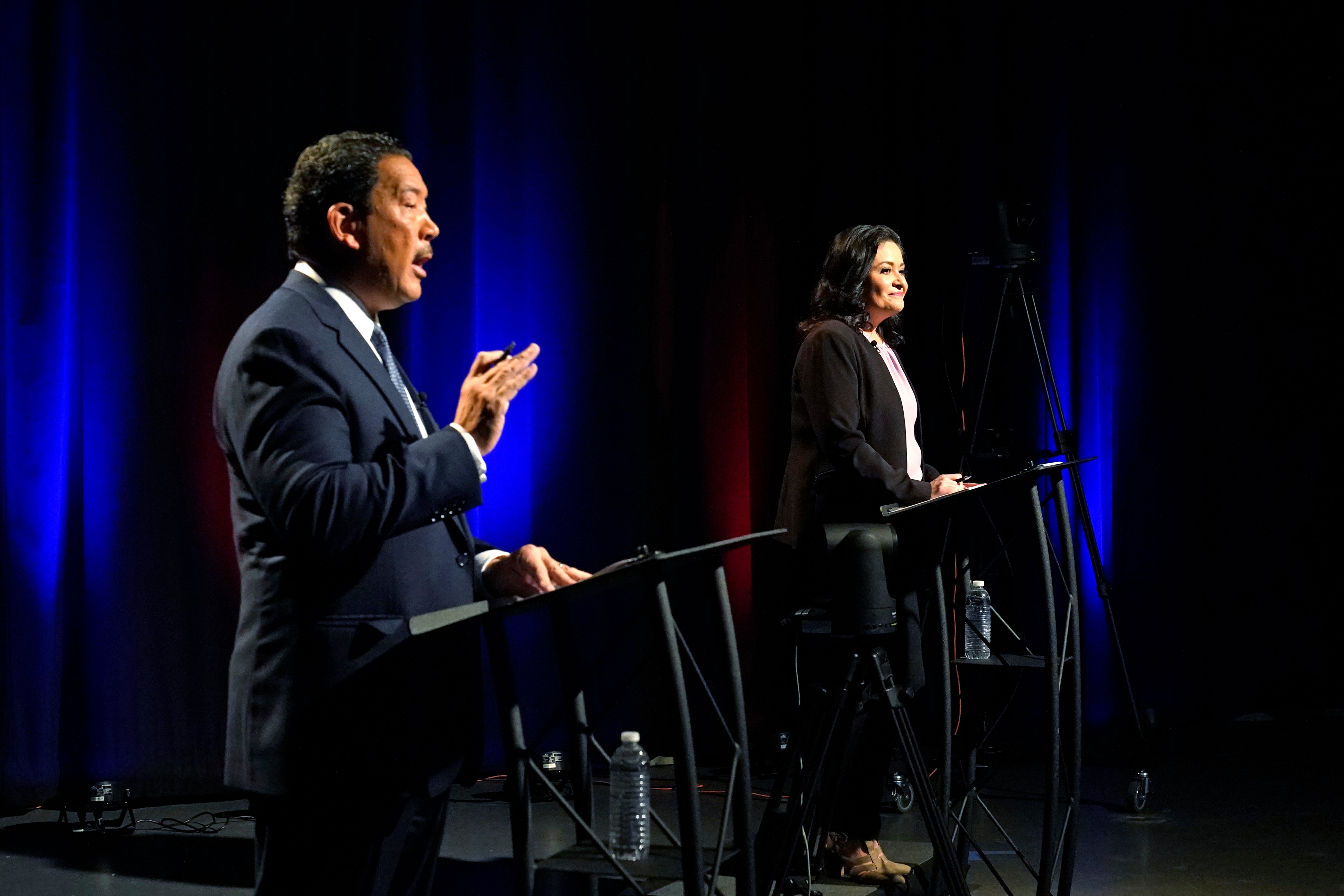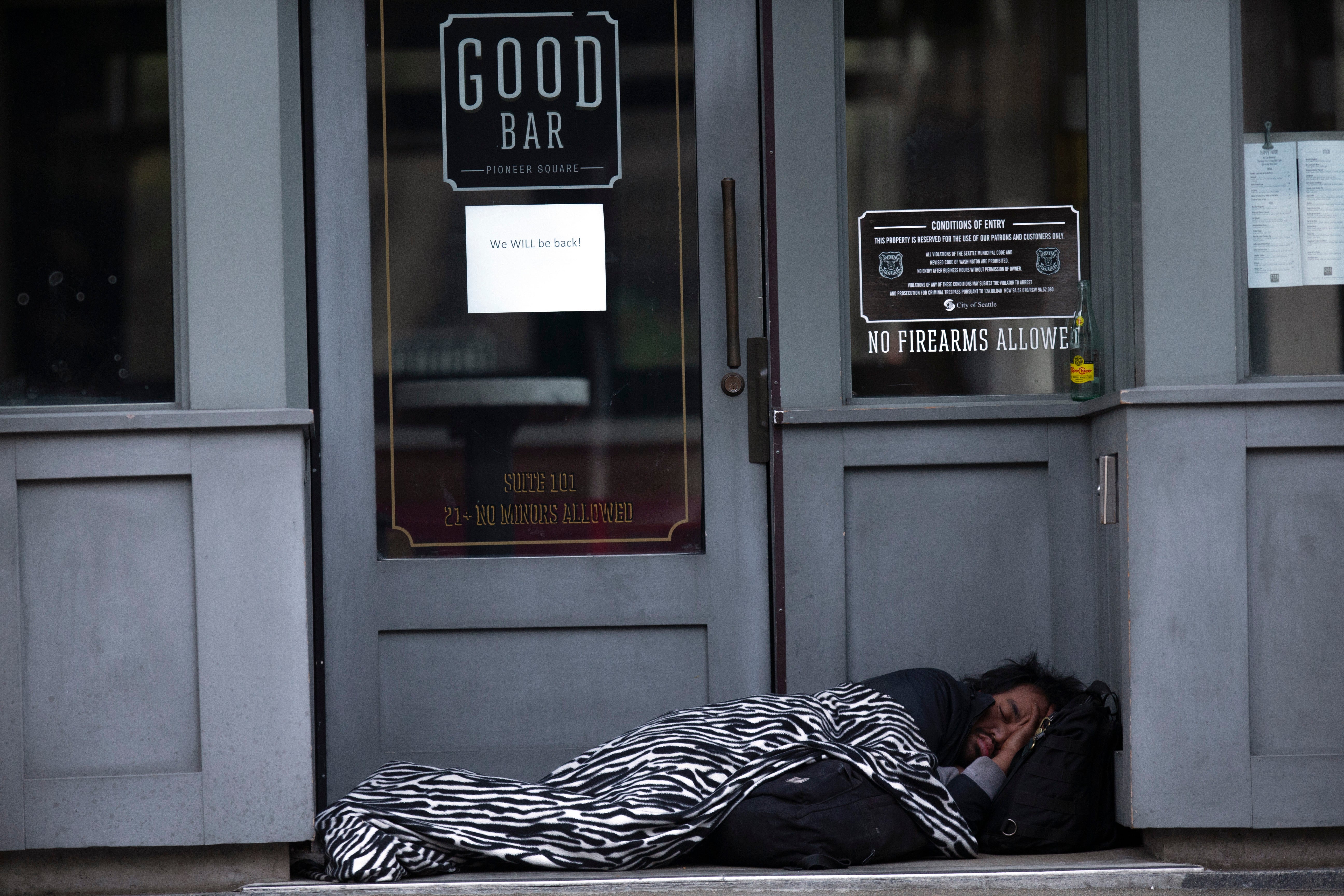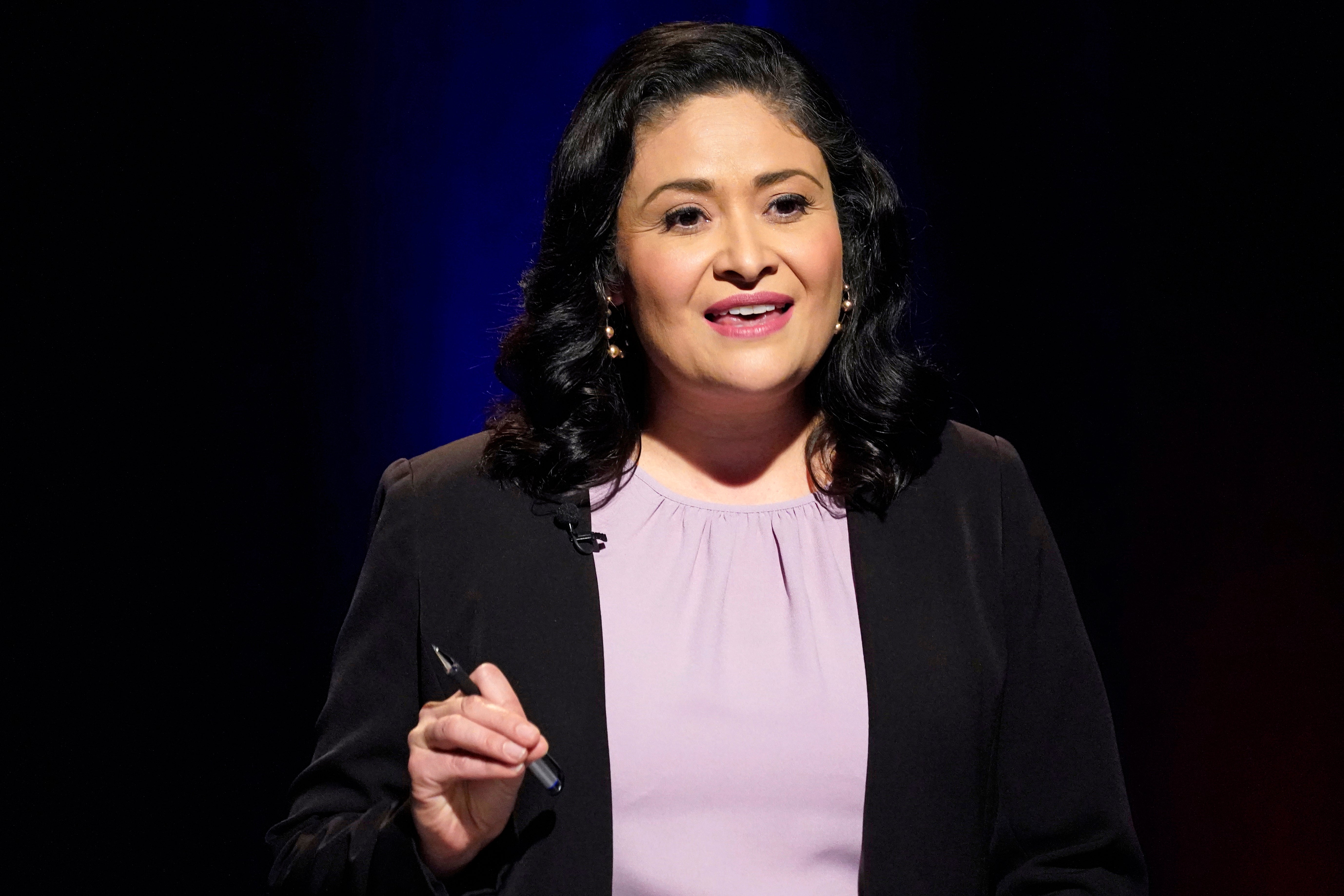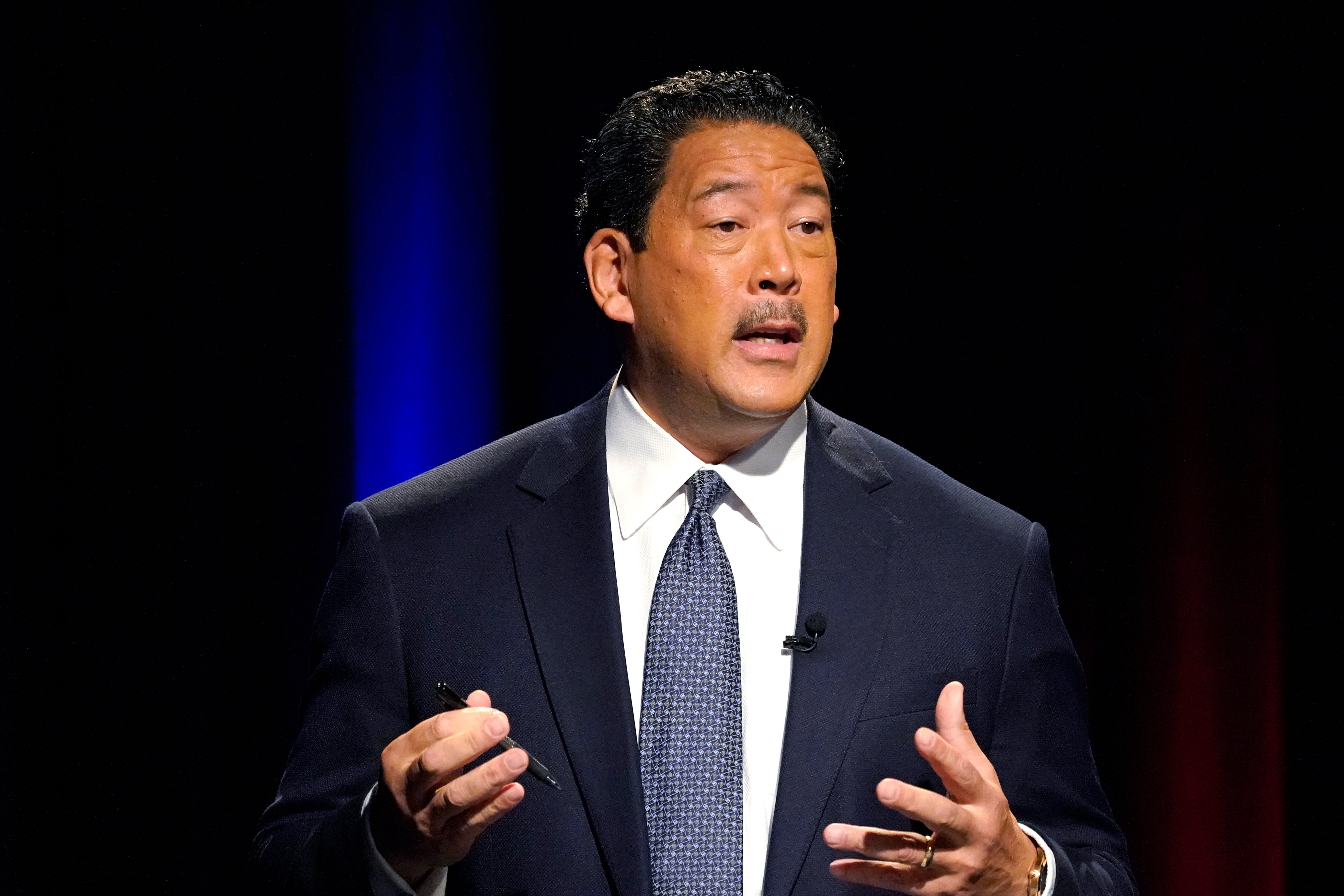Can either of the candidates for Seattle mayor truly tackle the city’s homelessness crisis?
Pacific Northwest city has some of highest rents in nation, writes Andrew Buncombe


Your support helps us to tell the story
From reproductive rights to climate change to Big Tech, The Independent is on the ground when the story is developing. Whether it's investigating the financials of Elon Musk's pro-Trump PAC or producing our latest documentary, 'The A Word', which shines a light on the American women fighting for reproductive rights, we know how important it is to parse out the facts from the messaging.
At such a critical moment in US history, we need reporters on the ground. Your donation allows us to keep sending journalists to speak to both sides of the story.
The Independent is trusted by Americans across the entire political spectrum. And unlike many other quality news outlets, we choose not to lock Americans out of our reporting and analysis with paywalls. We believe quality journalism should be available to everyone, paid for by those who can afford it.
Your support makes all the difference.One has said there must be “consequences” if homeless people living in parks repeatedly refuse help from the authorities. The other has said large corporations must be forced to pay more to tackle the crisis.
One has said they would appoint a cabinet-level position as part of the government to address homelessness. The other says ending homelessness means “we are creating true health and opportunities”.
But as Seattle prepares to elect a new mayor, after four sometimes fractious years in a city with some of the nation’s highest levels of visible homelessness in the nation, activists, experts and ordinary residents are asking whether either candidate, Bruce Harrell or M Lorena González, can really make a dent in such a large problem.
“In many ways, politicians are poorly positioned to solve the issue of homelessness, because they tend to be looking for short-term fixes that are politically popular,” said Professor Sara Rankin, Director of the Homeless Rights Advocacy Project at the Seattle University School of Law.
“Whereas, anyone who works in this field, knows any solutions need to be long-term and are rarely simple.”
Even measuring the number of those without proper shelter, or agreeing who can be defined as “homeless”, is far from simple.
One measure, called the Point-in-Time Count, and which is known to capture only a certain number of the homeless population, suggests the city’s homeless population in 2020 stood at around 11,750. But that only measures people who have come into contact with one agency or another, and activists say the homeless population often avoids such interactions.
Furthermore, that figure may only account for 30 per cent of those who are homeless, or housing insecure. The vast majority of those struggling to find a place to live in a city with some of the highest rents in the US, and one of the smallest pools of affordable housing, are sleeping on friends’ sofas, doubling up in spare rooms, or even living in their garages.
Researchers have found people of colour, particularly indigenous Americans, are disproportionately represented among the homeless. Black people account for 25 per cent of the total, whereas they account for just 7 per cent of Seattle’s population.
Reports suggest the Covid pandemic led to a spike of as much as 50 per cent in the number of people sleeping outside.
This year, as federal and local moratoriums on evictions have ended, so too the number of sweeps ordered by outgoing mayor Jenny Durkan has increased, as business owners and members of the public demanded parks and open spaces be cleared of the tent cities.
It is something of a departure from the hopes she voiced when she first took, office, claiming she wished to push inequality and that homelessness was a crisis “that threatens the soul of our city”.

Last December, Ms Durkan said she was not seeking re-election, the fourth mayor out of the past five to serve just one term here.
In the primary elections to replace her, as many as 15 candidates sought the position. Ms González, 44, who is currently president of the Seattle City Council and who got 32 per cent of the vote, and Mr Harrell, 63, a former council president who secured 34 per cent, are facing off in the general election on November 2. Both are members of the Democratic party but are running as independents.
In a recent debate, both claimed confronting homelessness was a priority. There was a clear difference in how both planned to do so.
Ms González, a former civil rights lawyer who is considered to the left of her opponent, said Amazon and other major companies needed to pay more taxes.
“I have made it my life’s work to stand up and fight for working families,” said Ms González, who has won the endorsements of many of the region’s labour unions. She has also supported cutting funding to the police department by as much as 50 per cent, and would hold officers accountable for the “extraordinary abuse of our life and liberty”.
She added: “I’m the only candidate in this race who has unequivocally stated that I do not support forcibly removing people from public spaces when there is insufficient shelter or homes to offer people who desperately need it. As mayor, my goal is to end homelessness, not hide it.”
Mr Harrell, who has the endorsement of a number of business groups as well as the Seattle Times newspaper, has sought to tap into the support of people who back clearing parks and public spaces of homeless encampments.
Pointedly, he held two press conference in parks, set against the backdrop of homeless people’s tents and belongings.

He has said the city needed to understand why some homeless people refused help. He has said he would build 1,000 units of shelter within the first six months of being elected, and another 1,000 within a year.
“Seattle should not look at this as though we have a scarcity of resources,” he said. “At the same time, we will pursue every type of progressive tax revenue that the state has given us, every single dime we can get. We will also tap into these corporations who are doing quite well through their corporate social responsibility efforts, but I believe this is going to be a team approach in our city.”
Mr Harrell, whose father was Black and whose mother was Japanese and interned during World War II, would be the city’s first Asian-American mayor.
Ms González’s parents were migrant workers from Yakima, the region’s major fruit and farming area.
In response to emailed questions from The Independent, Mr Harrell claimed what made him different to his opponent was that he had outlined a plan “defined by action and urgency, versus my opponent’s embrace of status quo thinking that has only allowed this crisis to worsen”.
“It is inhumane for people to live in parks and on school grounds without heat, running water, or sanitation – we have the resources to end this suffering,” he said.
Asked about allegations that talk of opening up parks to everyone is coded language for backing sweeps, he said: “We will reject failed policies that do nothing to substantively address homelessness. Sweeps – moving people from one place to another without a serious offer of needed housing or services – do not drive any tangible progress for the people living unsheltered, and only compound the frustration of local residents, and harm to those experiencing homelessness.”

Ms Gonzalez’s campaign, which is also endorsed by Bernie Sanders, Elizabeth Warren, and Seattle congresswoman Pramila Jayapal, Chair of the Congressional Progressive Caucus, did not respond to requests to answer questions.
On the issue of homelessness, her website says: “Every day in Seattle we see painful evidence that homelessness is an unacceptable crisis affecting all who live, work, and visit here, most especially our neighbours living outside.”
It says she wants to “build a city for my daughter and all children that’s just and equitable, where all people have homes”.
It says she wants to tackle mental health issues, build more affordable housing, and make major companies pay more to provide resources to back her plan.
“I am committed to creating an inclusive and interconnected city, investing wisely and deeply in the housing and strong public transit we need,” it says.
“We should make sure more homes of all shapes and sizes are available for our neighbours: duplexes, triplexes, and other lower cost homes across Seattle.”
Tiffani McCoy, advocacy director for Real Change, a Seattle non-profit that campaigns for social justice and publishes a newspaper of the same name that is sold by homeless people, said the pandemic had a major impact on an already vulnerable people.
“We’re in an economically very insecure time – there’s wage stagnation, unemployment, the lack of a social safety net,” she said. “And the federal government telling its citizens ‘you’re now on your own ... we trickled down a couple of dollars to those who needed it the most, but now you’re just going out on your own’.”
She said moratoriums on rent evictions were coming to an end, and history showed an increase in evictions led to more homelessness.
“We still have thousands of neighbours out on the street. We have no policy whatsoever for folks who live in their vehicles. And we know that population is one the fastest increasing.”

There have been polls heading into the race. One, published by the Northwest Progressive Institute, found Mr Harrell on 48 per cent and Ms González on 32 per cent. It said 18 per cent were undecided.
The Independent encountered a similar uncertainty among voters in interviews recently on Capitol Hill, a neighbourhood with a progressive reputation.
Alice G, 36, an analyst, and her friend Ian D, 37, said they were both voting for Ms González.
“I already voted for Lorena González,” said Ms G, who asked that her last name be identified by an initial. “I think she has the better chance of getting something done.”
A 37-year woman called Noelle, who worked in global health, said she was from the Ballard neighbourhood, traditionally a working class community by the docks but one undergoing gentrification. She planned to vote for Mr Harrell, she said.
She did not expect to see a major transformation, particularly not in regard to homelessness, into which she said millions of dollars had been poured. She said he had a better plan to work with others.
She added: “I remember when things in the city used to work.”
Another person planning to vote for Mr Harrell was April Small, 58, who has been selling copies of Real Change outside a Safeway grocery for 15 years. She credited her association with the weekly newspaper for helping her be able to pay her rent. She said she had been homeless in the past, on and off, for 20 years,
“I used to be an addict,” she said. “But I went to treatment and was able to get clean. They need to have a big building where people can go and get that sort of help.”
Join our commenting forum
Join thought-provoking conversations, follow other Independent readers and see their replies
Comments